Wellness, wellbeing, mindfulness - everything good with adult education?
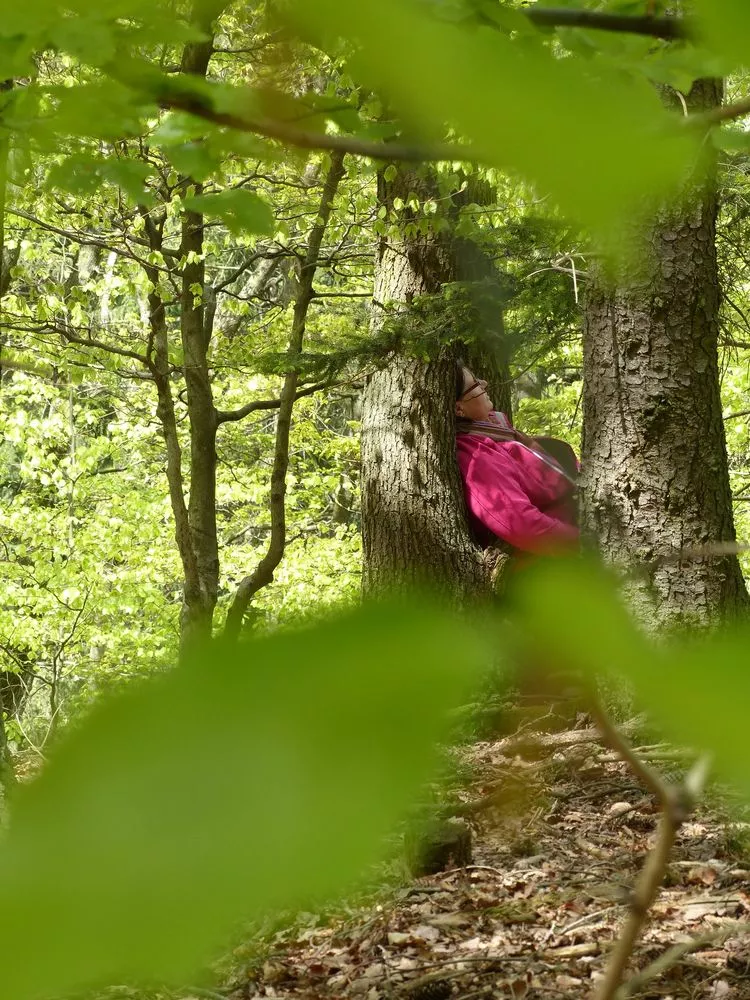
You could say that this scene looks strange: A group of mostly medieval women stands deep in the forest around a thick tree, devoutly looking at the bark of the trunk, caressing the deep furrows, inhaling and exhaling slowly and lung-sharp Forest bathing is the name of the offer, which has become increasingly popular in recent years. In the past, people probably just went for a walk through the forest. But - admittedly - nobody would do this form of guided meditation alone in the forest. As the author and instructor of forest bathing Annette Bernjus (https://waldbaden.blog) describes it, you can enjoy the pleasure of experiencing the many different sounds and smells of the forest in peace and quiet, sharpening your senses to breathe in the abundant oxygen as intensely as possible and reaching a pleasant state of relaxation.
How the Japanese discovered forest bathing
A Japanese forestry scientist had noticed during a stay in Germany in the 1970s that Germans like to go to the forest for recreation - which is not at all common in Japan. He suggested that his countrymen should also do Shinrin Yoku (= forest bath). Especially in Japan, the method of Shinrin Yoku has been further developed and its positive effects on health have been scientifically confirmed (Yoshifumi, M.: Shinrin Yoku - Healing Waldbaden, Munich 2018).
While Waldbaden is a relatively unknown method, "mindfulness" has become commonplace all over the country in adult education, in hip big companies or health oases as a feel-good programme for a stressed population.
From "sati" to "mindfulness”
The term "mindfulness" was first used by the German-born monk Nyanatiloka in the new translation of a Buddhist meditation manual (Palikanon 1922/23) for the term "sati" (= remembering, being aware, being conscious). Against this background, the American behavioural physician Jon Kabat-Zinn developed the "Mindfulness Based Stress Reduction" programme in the late 1970s. He places the corresponding English term "mindfulness" at the centre of his approach.
Jon Kabat-Zinn came into contact with meditation in the mid 60s. In 1979 he was given the opportunity to offer mindfulness meditation in the service of stress reduction. His first major publication appeared in 1990 under the title "Full Catastrophe Living" (German 1991, "Health through", current issue Munich 2013, 2nd, revised new edition). He transferred the meditative-spiritual traditions into secular thinking and language and worked out their importance for health education. The term "stress" served him as a bridge between health education and medicine. In the meantime, many books about stress management and mindfulness written by him are on the German market.
Pay attention to the blank sheet
If you look at a sheet of paper, you first look at the shapes and colours that are depicted on it - but not at the paper itself, although the white sheet of paper is the supporting surface without which the shapes could not be recorded. The white background surface usually does not appear in consciousness at all. We just orientate ourselves on the distinguishing features and do not pay attention to basic, constant elements. Stress arises because we are driven back and forth by different stimuli and tasks.
That now means mindfulness: the exercise as well as the posture of connecting with the "white sheet-paper-ground", of anchoring oneself in it. An essential part of mindfulness practice consists of tracking down stress-generating, mostly automated thought and feeling patterns, making them conscious from an inner distance and finally discarding them. These exercises are mainly meditations with body and breathing exercises, a lingering and contemplation, listening, patience, a perception without judging. And above all the practice of a friendly and benevolent attitude towards others as a compassionate attention to life, to oneself and to other people.
High Level Wellness for all
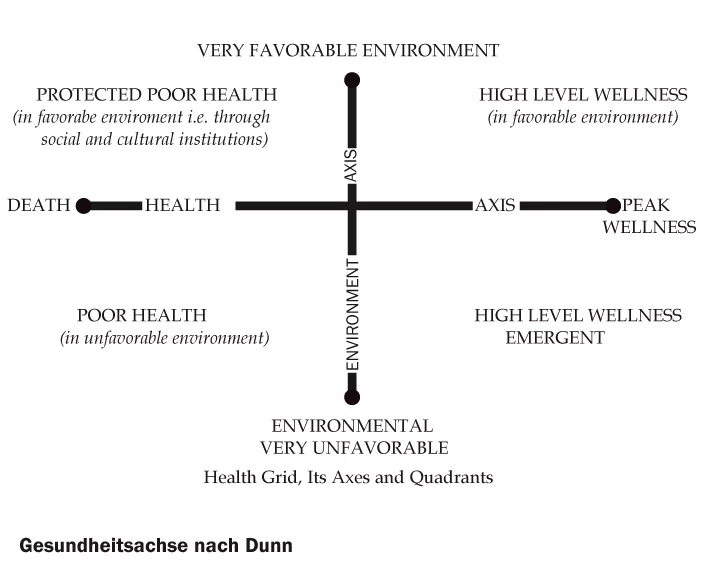
More well-being and less stress are achieved according to this model, which comes from an old Buddhist tradition, who learns to adopt a certain inner attitude. In the "wellness" concept, other factors come into play, which can also be learned for oneself, but ultimately also across the board as a social system in the form of "wellbeing". At least that is what Halbert L. Dunn (1896-1975), considered the father of the wellness movement, meant. He defined health as a state of complete physical, mental and social well-being and not merely the absence of disease and infirmity. According to Dunn, everyone, from the individual to the working world, the environment and society as a whole, has the goal of developing a "High Level Wellness".
In the 1990s, the term "wellness" was gratefully adopted by the hotel industry and seaside resorts. Since then, various private and public institutions have also been active in adult education with corresponding wellness and beauty offers. Total turnover in this sector is estimated at around 75 and 100 billion Euro for the German market.
Wellbeing as a task for state and society
Dunn's original idea has a lot to do with what is often seen as a fundamental task of state and society: to provide well-being, prosperity or wellbeing. This would basically be what Dunn means by "high level wellness". Education and adult education play an important role in well-being. Finland, whose adult education system is regularly rated as particularly exemplary, explicitly mentions "Wellbeing" as a task of adult education (Liberal Adult Education), and the third report on the situation of adult education in the UNESCO world explicitly deals with this topic ("(„The Impact of Adult Learning and Education on Health and Well-Being“, 2016). It has now been shown not only that health-promoting education of all kinds is good for people, but that it has a positive effect on the human organism and health in general if one learns for as long as possible and remains active.
Education keeps you healthy
The correlation between education, longevity, income and individual well-being appears to be particularly strong, as demographic research has now found out in a long-term study. Education provides for a better, health-promoting lifestyle and a better work-life balance (Wittgenstein Centre for Demography and Global Human Capital: Life expectancy: The head is more important than the wallet. In: Demographic Research 2019 Issue 2) This phenomenon has also been identified through benefit research in adult education. Even participants of IT courses live healthier lives due to the effects of participation. So it doesn't matter if you learn how to stay healthy or something else. The main thing is adult education - and you stay healthy.
Sources for this article:
All in: Adult education 2020, Issue 3 at Epale: https://epale.ec.europa.eu/de/blog/neue-ausgabe-der-erwachsenenbildung-erschienen-wellbeing-damit-es-uns-gut-geht
Monika Kil: No fear of side effects - further education can be healthy! The effects of adult learning go far beyond the immediate benefits, S. 100-104
Joachim Thönnessen: Wellness for all - reconstruction of a development. Learning together for the community and cultural growth, pp. 110-113
Michael Seitlinger: The practice of mindfulness. Origin and application of a spiritual culture of consciousness, S. 130-132
Annette Bernjus: A soothing bath in the forest. Bathing in the forest: a recognised method of stress management and health promotion, S. 137
About the author:
Dr. Michael Sommer is a graduate journalist and was a research assistant for journalism and education for five years. Since 1993 he has been working for the Akademie Klausenhof and the Katholische Erwachsenenbildung Deutschland (KEB) as a journalist, press officer responsible editor of the journal "Erwachsenenbildung", active in media-pedagogical educational work and in European projects He is also EPALE ambassador.
Weitere Beiträge von Michael Sommer:
Die beste Versicherung gegen Unsicherheit: wissen, lernen, können!
Die Betroffenen im Mittelpunkt: „Erwachsenenbildung“ über Prävention von Kindesmissbrauch
Alles nur noch „Skills“? Über das Verhältnis von Schule und Erwachsenenbildung
Kommentaarid
Meditācija un labsajūta
- Kommenteerimiseks logi sisse või registreeru
Wellbeing als Hilfsmittel für Work-Life-Integration?
- Kommenteerimiseks logi sisse või registreeru
Labsajūta, labjutība, uzmanība
- Kommenteerimiseks logi sisse või registreeru
Jepp ...
- Kommenteerimiseks logi sisse või registreeru
BeLL-Studie sagt das auch 2
- Kommenteerimiseks logi sisse või registreeru
Stress un dzīves kvalitāte
- Kommenteerimiseks logi sisse või registreeru
BeLL-Studie sagt das auch!
- Kommenteerimiseks logi sisse või registreeru
Par veselību un mācībām
- Kommenteerimiseks logi sisse või registreeru


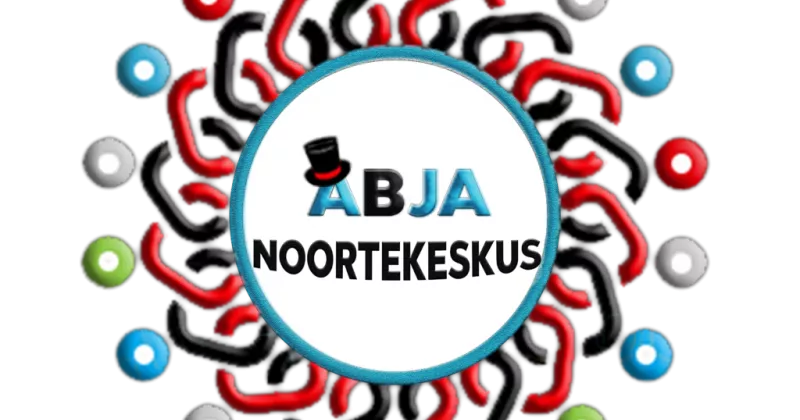
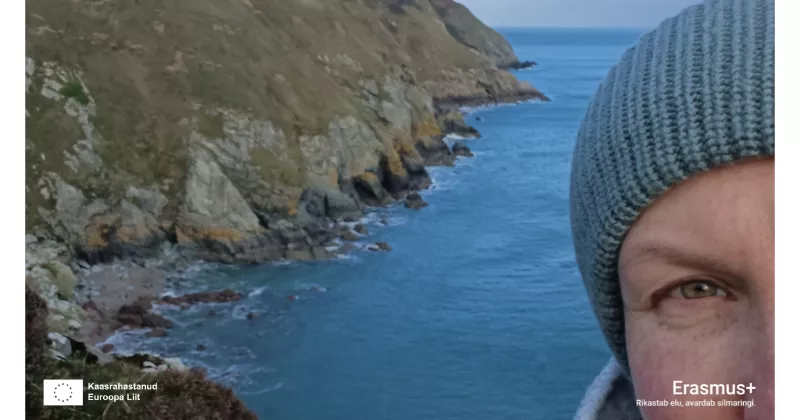

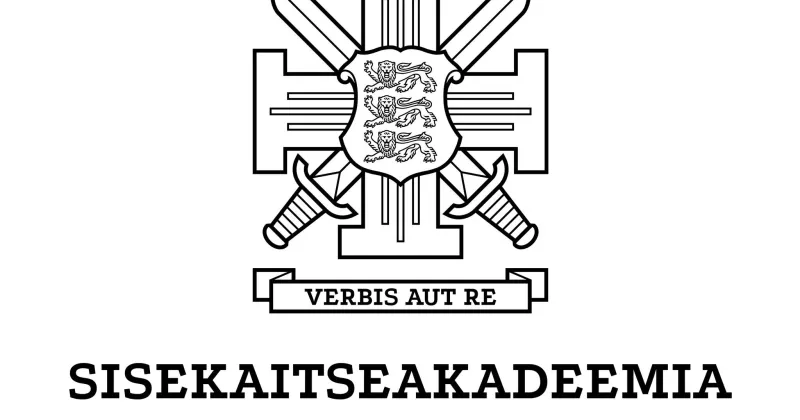
Danke für diesen wichtigen Beitrag